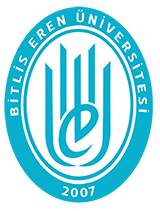GDD Generation for Hyper-Casual Games Using Large Language Models: A Comparative Evaluation
View/
Date
2025-09-30Author
Bal, Abdullah
Doğan, Buket
Aydinalp, Muhammet Emin
Metadata
Show full item recordAbstract
Game Design Documentation (GDD) is a critical document that includes the design and mechanical details of the game to be developed. These documents create a common understanding among team members by including details such as the game's progress, story, and design features. In order for the game development process to proceed and be completed healthily, these documents must be prepared in a high-quality, clear, and detailed manner. However, the creation of this documentation is a time-consuming and error-prone process. Especially in game genres that require rapid prototyping, incomplete or insufficient GDDs can cause delays in the project process. This study was conducted to examine the effectiveness of LLMs in GDD production. The hyper-casual game Pool Wars was selected as a reference, and for this example game, the GDD created by a human expert and the GDD produced by ChatGPT-4 using various prompt methods were evaluated by four experts in the field according to eight different criteria using a five-point Likert scale. In addition to structural and creative aspects, visual elements were also included in the evaluation process. ImageFX, developed by Google, was used to add visual content to the GDD created by ChatGPT-4. As a result, it was seen that LLMs were more successful in many criteria in GDD production. As a result of the scoring made by an academician and three experts from the sector, GDD created by LLM received an overall average score of 4.71 out of 5, while GDD prepared by human expert received 3.29 points. GDD produced by LLM showed a clear superiority especially in terms of understandability and level of detail. However, it showed a similar performance to human expert in terms of creativity and visual content and it was observed that there was room for improvement in these areas.
Collections

DSpace@BEU by Bitlis Eren University Institutional Repository is licensed under a Creative Commons Attribution-NonCommercial-NoDerivs 4.0 Unported License..













